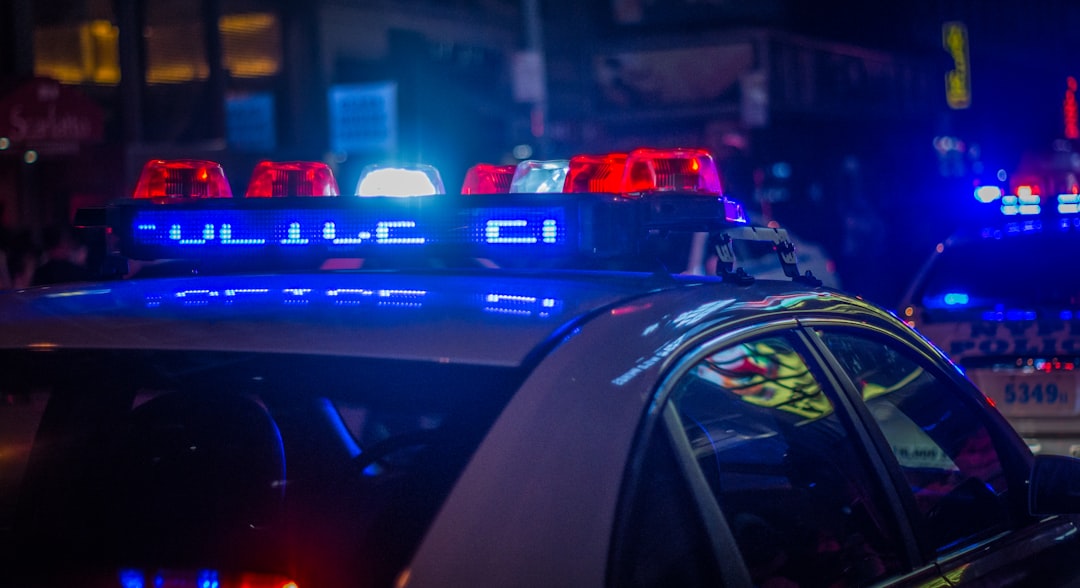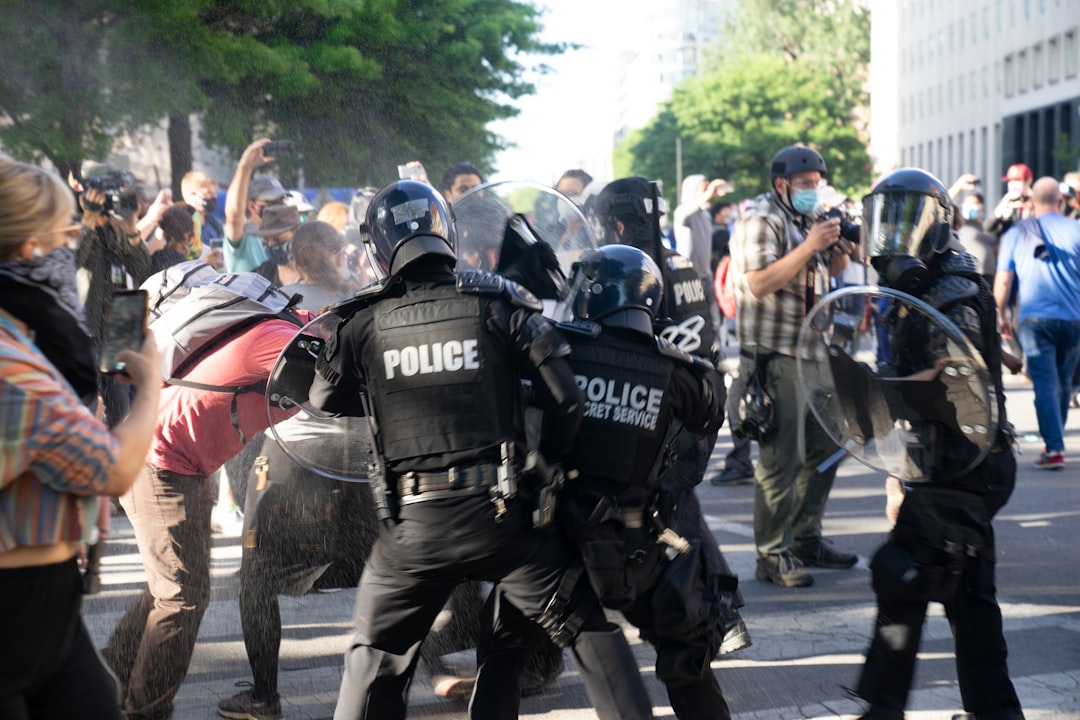Before Brandon Johnson even won the Chicago mayor’s race, police were threatening to quit. They were very upset about the fact that he repeatedly said public safety fundamentally comes from people having stable housing, economic opportunity, and good schools—and not just from more police. Then, after Johnson won, reports started emerging almost immediately of police engaging in denial of service to the people of Chicago. Simultaneously, multiple local publications began running pieces about how Brandon Johnson has to make peace with the police, has to sort out the crime problem, and essentially implying both that any police slowdown and all crime is his problem. There’s only one issue with this argument. He won’t be sworn in as mayor for another three weeks.

This response from Chicago PD to a mild reformer running for mayor, and winning, illustrates a much bigger problem with policing and with the political role of police in the United States. Namely, police have become overtly political actors, a powerful bloc that spends money to support far-right candidates, actively fear-mongers to help politicians who are willing to give them even more money, and increasingly rejects civilian oversight. Some of this is well known, and more or less widely accepted. It’s common knowledge, for example, that the NYPD’s unions endorsed Trump both in 2016 and 2020, and that they have no regrets about it. However, there are lesser known examples of law enforcement’s lawlessness, which can be seen in the attitude of individual officers, the culture of their departments, and in the actions police choose to take, particularly against democratically elected officials they disagree with.
One of the clearest instances of police being willing to go to great lengths to advance a harmful political agenda is January 6th. At least 39 law enforcement officers from around the country traveled to D.C. to participate in the insurrection. This is extremely well researched and documented in the article linked above. Given the police endorsements for Trump, and the propensity for violence many cops exhibit, this might not be particularly surprising. But being willing to go to such lengths is a clear demonstration of how police can be detrimental to public safety and democracy, and will flout the law in multiple ways if they believe it advances their agenda. Another shocking example that has stuck with me since I first saw it is when the NYPD doxxed Bill de Blasio’s daughter.
At the very beginning of the George Floyd uprising, the end of May 2020, Chiara de Blasio went to a protest, where she was arrested. One of the NYPD unions, the Sergeants Benevolent Association, tweeted, yes tweeted, as in they didn’t just leak the info to the New York Post like they normally do, a report detailing her arrest. This report included Chiara’s personal information, such as her height, weight, address, date of birth and driver’s license. I distinctly remember my shock at the time. The NYPD very overtly and intentionally doxing the mayor’s daughter in the most public way possible at a time of extremely heightened tensions around policing and Black Lives Matter seemed like a dramatic escalation.
But today I’m less shocked. Police forces around the country have shown themselves unwilling to submit to civilian oversight, from refusing to testify before their city councils to stonewalling investigations to flat out deciding not to follow laws, as we saw recently in Pittsburgh. This is because the police do not view themselves as public servants. They view themselves as an elevated class of citizen, above the law, the last bulwark between society and mayhem and therefore entitled to the special rewards that naturally ought to come with such a position. I can’t know exactly how different departments break down between those officers who initially wanted to do good and then bought into a twisted culture and those who always were primarily there because they wanted to be above the law, but the results are unanimous; police departments view themselves as entitled both to salaries and benefits that are superior to other government positions, and to a level of respect and deference not afforded others. They do not view themselves as public servants, rather they view themselves as the people the rest of us ought to be serving.
And police actively work to protect and enhance their special position. The Chicago Police department, for example, has a 61-member communications team, and that division receives $3.85 million per year. These cops work to improve the image of the department, draft laudatory press releases, and spin the many crimes police commit. When a 2018 California law mandated that police departments release body cam footage of police shootings and other situations, the police said okay, then began to edit every video they released to convey the story they wanted to tell rather than releasing the raw footage. Police departments across the country are actively engaged in media campaigns, both with willing local news partners and on social media, to make city crime rates seem unprecedented and horrific so that a fearful population pressures politicians to fund them more, and more. New York again comes to mind, with the recent national wave of attention over a ‘record spike in crime’ that, if you were to just consume conventional and right-wing media, seems to grow unabated and horrifically. In truth, our city is nowhere near record levels, with the murder rate at less than 25% of what it was in the ‘80s. But the former cop in the mayor’s office, conservatives, the NYPD and local news continue to work diligently so that accurate statistics don’t reach the airwaves.
Then we come back to the case of Brandon Johnson, and the election of a mayor who has said that the root causes of crime are poverty, the defunding of schools, and the defunding of essential services. The police response, their refusal to help people before he even takes office, and their moves to blame him while they hurt Chicago residents out of political self-interest are deeply revealing, and we need to learn from this situation. We need to learn that police are not here to protect and serve us. Their societal function is to protect and serve the ruling class, capitalists and ultimately the oppressive economic structure of society overall through policing the poor and racialized. But they increasingly also exist simply to serve themselves. Over the last five decades of reinforcing police power out of fear of dissent and out of the desire to create a criminalized, disproportionately Black and POC underclass, in particular as inequality worsens, police have become a political juggernaut. Politicians, with the occasional exception, fear opposing them, both because of the electoral consequences and the consequences police might mete out.

This has led to dual dangers for society. One, police function more and more as anti-democratic agents: bludgeoning their way into getting their politicians in office when possible, and when that becomes more difficult resorting to embracing increasingly overt fascists and taking matters into their own hands. And their preferred method of retribution against reformers is harming public safety and hurting people to get what they want. Ideally, we would have tons of other resources to turn to when it comes to public safety, but part of the over-investment in police has been a dramatic under-investment in alternatives to policing. There is also the issue of cops themselves sabotaging violence prevention or violence interruption alternatives to policing, which is very much in line with everything else discussed in this essay, unfortunately.
So we have to reckon with the fact that police have a powerful material incentive to harm public safety, ignore public outcry, and damage democracy. The last mayoral election in New York is perhaps the clearest case and point available. An assemblage of interested parties, from police to media to Eric Adams, relentlessly beat the drum of crime, as discussed above. And it worked! A former police officer who has been very clear that he is not interested in defunding police and hopes, in fact, to invest more in a police department that counts its budget in billions (it’s up to $11 billion per year now) becomes mayor. He immediately increases the policing of the homeless, the police presence on the subway, and aims to give them more money. Before you know it, they have their most lucrative contract ever, and he’s trying to defund schools and the library system. And that’s how the police materially benefit from harming public safety, and from the attendant perception of diminished public safety.
What we need to do is reckon with this bluntly and honestly. We need to strip away the fantasy of police as noble protector and accept that police are political agents, often harmful and violent agents. An honest assessment of this situation will help us to understand the actions we need to talk in response, like kicking them out of the labor movement, defunding them, and investing in schools and libraries and public space and opportunity and more. We need strong communities, strong and vibrant neighborhoods, strong relationships and a population with a large array of tools and skills around conflict resolution, transformative justice, and community organizing. The case for investing in teaching these skills and building up our communities rather than endlessly funding police is quite clear, and the future of democracy and public safety hang in the balance.



God I wish I could listen to this in Snoop dog's voice, great piece.